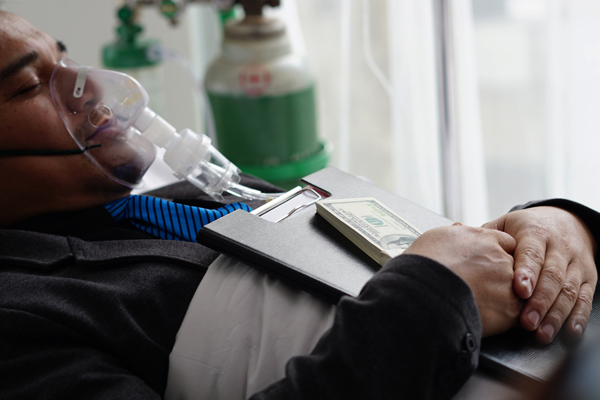How a General Dentist Treats Sleep Apnea

An estimated 22 million Americans have sleep apnea, and well over half of individuals with obstructive sleep apnea have a moderate to severe case. A general dentist studies and understands why sleep apnea occurs and can effectively treat it with oral appliances and other treatment methods.
General dentistry and sleep apnea treatment
Sleep apnea is a common condition in which the airway in the back of the throat closes while sleeping. This causes the person to quit breathing temporarily. It is not a major health risk, but it does lead to the individual constantly waking up throughout the night and can lead to cardiovascular health problems if left untreated for too long
Many do not know whom to visit when sleep apnea leads to concerning symptoms. While visiting a sleep specialist may be necessary in some cases, a general dentist who offers sleep apnea treatment can also address the patient's concerns. General dentists focus on all aspects of oral health, and many consider sleep apnea to be an important condition to treat, as it can affect oral health and general health.
Dental treatment options for sleep apnea
The two main types of treatment for sleep apnea are CPAP machines and mandibular advancement devices. Although CPAP machines are effective, general dentists are typically more likely to recommend a mandibular advancement device. This device is a custom mouthguard that keeps the tongue and jaw in the proper position to keep the airway open while asleep.
Other treatment options include surgery or medications. Medications are typically only effective for central sleep apnea. Moreover, surgery is often only used if less invasive treatment methods do not work.
How the process works for sleep apnea treatment
The sleep apnea treatment process with a general dentist begins with a consultation. The dentist reviews the patient’s dental and medical history, documents their sleep apnea symptoms, and discusses treatment goals. They can then discuss all available treatment options and decide on the best method, which is often a mandibular advancement device.
When to visit the general dentist for sleep apnea treatment
If symptoms of sleep apnea begin to affect a person's general health and quality of life or they have been recently diagnosed with obstructive sleep apnea, it is important for them to seek treatment. Common symptoms include but are not limited to:
- Waking up at night
- Feeling tired during waking hours
- Difficulty concentrating
- Snoring
- Having migraines in the morning
- Gasping or choking sounds when asleep
Many patients report long-term relief from their sleep apnea symptoms after visiting a general dentist and starting a treatment plan tailored to their unique needs.
Schedule your first visit with our dental practice
Are you considering sleep apnea treatment from a general dentist? If so, call or send our friendly dental team a message today to schedule a visit. During the visit, we can discuss your symptoms, goals for treatment, and treatment preferences to determine the best way to manage your sleep apnea symptoms in the long term.
Request an appointment here: https://www.drcranedental.com or call T. Kirk Crane, DDS at (337) 205-9565 for an appointment in our Lafayette office.
Check out what others are saying about our dental services on Yelp: Sleep Apnea in Lafayette, LA.
Related Posts
A strong relationship with a family dentist gives households a trusted partner in oral health. With regular visits, clear guidance, and practical tips, families learn how to protect their smiles through each stage of life. For instance, daily brushing and flossing, thoughtful food choices, and consistent professional care work together to reduce the risk of…
Getting tooth implants is not the final phase of an implant restoration procedure. The stage is simple, but the recovery period can be uncomfortable. This part of the implant process is the time for the mouth heals and fuses to the implant post. The following guide covers what to expect during recovery and the steps…
A dental implant provides a stable base for a natural-looking tooth replacement. This proactive solution fills gaps in the smile and maintains a healthy jaw. Respectively, the bite remains aligned, preserving the natural shape of the face. Thanks to dental implants, patients can enjoy a stable and beautiful smile that lasts.The most noticeable impact of…
Having a cavity is no fun. Fortunately, there are options like laser dentistry that can make cavity treatment more effective and efficient than the traditional cleaning and filling that many patients are used to. Here are some benefits of laser cavity treatment to help you better understand how this treatment method can help improve your…
